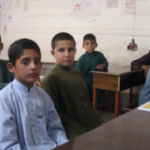In Afghanistan, healthcare services have always been one of the sectors that require significant attention and urgent measures. Specifically, the healthcare condition and services for children are a critical issue, especially in remote areas of the country. Due to Afghanistan’s limited resources and complex circumstances, the country faces numerous challenges in this sector. Although some healthcare services have expanded in recent years, children’s healthcare services remain insufficient, and urgent action is needed to address this problem.
Many children in Afghanistan suffer from various health issues that are treatable globally, but due to the weak healthcare system, they do not receive proper treatment. Among the diseases that many Afghan children face are diarrhea, pneumonia, malnutrition, and the spread of diseases like polio. In many areas, the lack of vaccines and public awareness exacerbates these problems. This situation clearly highlights the need for serious efforts by the Afghan caretaker government and health institutions to improve these services.
The lack of healthcare facilities in various regions of Afghanistan is a significant barrier. Many families are forced to forgo necessary medical treatment for their children in remote and rural areas due to the absence of nearby health centers. This issue is particularly severe in areas affected by wars and natural disasters. In these regions, focusing on children’s healthcare services should be a top priority for the caretaker government, as these children represent the future of the country.
The role of international health organizations is also crucial in this area. The World Health Organization (WHO) and other international aid organizations must pay special attention to children’s health in Afghanistan and coordinate their efforts with the Afghan caretaker government to expedite their activities. These organizations can work jointly with Afghan authorities to expand vaccination programs and provide necessary healthcare facilities for remote regions.
Children’s health problems cannot be resolved solely in hospitals; public awareness must also be increased. Afghan families should receive the necessary information about children’s health. Often, health issues in young children are not properly managed due to a lack of public awareness. Therefore, health awareness programs should be expanded in all areas, so families understand how to improve their children’s health and prevent diseases.
Afghan businessmen and investors also have a vital role to play in this sector. They can support health projects and contribute to establishing new health centers in remote areas. This will improve children’s health conditions and help the country witness a healthy and strong generation.
In conclusion, it is a moral and humanitarian responsibility for the Afghan caretaker government and international health organizations to prioritize children’s healthcare. Children’s healthcare services should not only be expanded but also improved in quality so that all children can enjoy a healthy life, ensuring a brighter future for Afghanistan.













